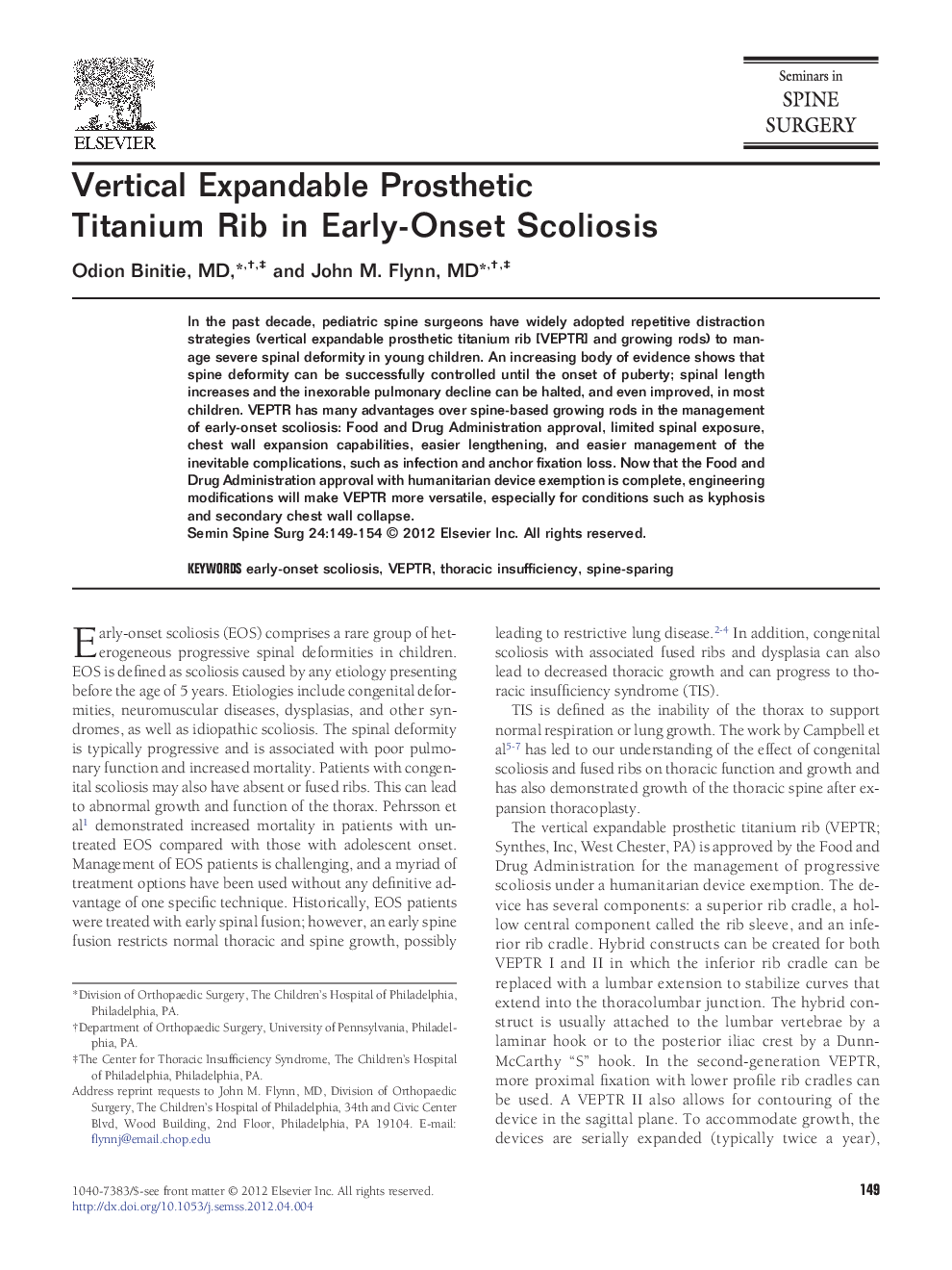| Article ID | Journal | Published Year | Pages | File Type |
|---|---|---|---|---|
| 4094751 | Seminars in Spine Surgery | 2012 | 6 Pages |
In the past decade, pediatric spine surgeons have widely adopted repetitive distraction strategies (vertical expandable prosthetic titanium rib [VEPTR] and growing rods) to manage severe spinal deformity in young children. An increasing body of evidence shows that spine deformity can be successfully controlled until the onset of puberty; spinal length increases and the inexorable pulmonary decline can be halted, and even improved, in most children. VEPTR has many advantages over spine-based growing rods in the management of early-onset scoliosis: Food and Drug Administration approval, limited spinal exposure, chest wall expansion capabilities, easier lengthening, and easier management of the inevitable complications, such as infection and anchor fixation loss. Now that the Food and Drug Administration approval with humanitarian device exemption is complete, engineering modifications will make VEPTR more versatile, especially for conditions such as kyphosis and secondary chest wall collapse.
